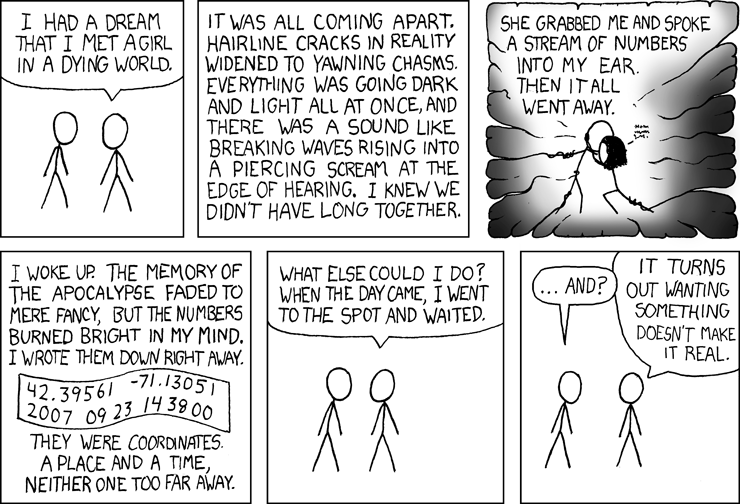Back in mid-2000, I set up my first Internet bank account. I have been
using the same bank ever since. The whole notion of Internet banks has
changed a lot since then, since virtually every bank offers varying degrees
of online access these days. Lately I checked on banks to see if I was
still using the best one. Here are my reviews of
the two banks.
Internet Banks
Let’s first talk about what makes a bank an “Internet bank” or “online
bank”. So many banks let you manage your account online now, that the
distinction is blurry. But generally, I would say that unique features of
Internet banks are:
- Significantly higher interest rates than traditional banks
- Ability to open an account online or by mail, and perform all banking
functions without visiting the bank in person
- Free bill payment services
- Free self-initiated electronic transfers from your other bank
accounts
- Immediate, real-time posting of transactions
- Your own bank never imposes a fee for using an ATM card at another
bank’s ATM
- Web access to account info, history, canceled check images, and
statements
- Toll-free number for account basics (balance, transfer between your
accounts at the bank, etc) over the phone
- Great telephone customer support
- An absence of outlandish fees
There are a few to highlight.
Real-time transaction posting is a great thing to have. If you go
to the website and transfer money from your savings to your checking
account, you can go to the ATM *now* and withdraw it, and when you get back
to your desk, the ATM transaction shows up. There are none of these
confusing “business day” rules with cutoff times that traditional banks
seem to love. And none of this annoying “process all withdrawals first”
business that large traditional banks (hello, Bank of America) love to do
in order to screw with customers.
High interest rates. Don’t even bother with an online bank if the
savings interest rate is less than 3% (or checking less than 1%, in my
opinion). It is almost impossible to find a traditional bank with these
rates.
Note: if you’re reading this after April, 2007, these guidelines may no
longer apply due to interest rate changes.
Electronic transfers from other banks. Another great feature. A
number of banks let you set up, and then initiate, electronic transfers to
and from your accounts at other banks. This is usually free if you are
using the feature to transfer money into your account, and with a flat
per-transaction fee (usually about the same as a foreign ATM fee) for
transferring money out.
Ability to do all business without visiting a branch. Not only
should this be possible, but routine business (such as making deposits)
should be easy to do without visiting a branch. You should be able
to order new checks online.
Now let’s look at the individual banks.
First Internet Bank of Indiana
FirstIB (they provide nationwide
service, despite the name) is the bank I signed up with in 2000. I had
found a bank in Dallas that I really liked, but when I moved to
Indianapolis, I tried two and liked neither. They all seemed to have
really poor interest rates, offer few useful services, and fees for so many
conditions that it was hard to avoid them. (More on that in the
traditional banks section below)
I looked at the online banking scene at the time, and wound up opening a
checking and savings account with FirstIB. FirstIB started as an
online-only bank, but recently acquired a bricks-and-mortar bank as well.
I found FirstIB’s customer service
at the time to be top-notch; I would dial their toll-free number, select
*one* option from a menu, and a rep would answer *immediately*. (Take
that, Bank of America, with your 45-minute hold times…) Since FirstIB
was based in Indianapolis, I actually visited their offices a couple of
times. They had a locked lobby. You picked up a phone, pressed 0, and
went into the same queue that callers to the 800 number did, then just
asked them to come to the lobby and transact your business. (They would
not give out cash there, but could take new account paperwork and deposits
and the like)
Their interest rates have consistently outperformed traditional banks, and
they offer all the online banking amenities listed above. They did not
offer online statements at first, but these days online statements are the
norm (there is a fee if you want paper statements). Check ordering is
accomplished using a linking with the Deluxe check printers. The web
interface uses Digital Insight, and the ACH transfer
interface uses CashEdge.
FirstIB will actually reimburse you, at the end of the month, for ATM fees
that other banks charge you, up to $6/mo. They also provide an
unlimited supply of free postage-paid deposit envelopes, and have a PDF of
deposit slips that you can print out should you run out.
FirstIB’s customer service has slipped in recent times. I know of some
people that have been impacted by some errors that FirstIB has made (simply
not processing paperwork that they should have processed). Wait times have
gone up for the phone line, and a lot of the great “small bank” feel (where
they actually knew their customers, and you might actually know the reps)
is gone.
Presidential Bank, FSB
Presidential Bank is the bank I’m looking at now. I was initially drawn to them by their extraordinarly
high interest rates (5.25% for savings!), but some other things have
convinced me to use them.
Initially, I was suspicious. Presidential is a bricks-and-mortar operation
that has been around for awhile, and was one of the very first Internet
banks. Their website says that they started offering Internet accounts in
1995, and very much looks like it hasn’t been updated since. (Thankfully,
the account management interface is more modern). I almost thought the
site was a fraud up front, a “too good to be true” deal with the high
interest rates and bad-looking website. But after doing some research,
realized that it is quite real.
Before setting up accounts with them, I had a few questions (such as
whether or not transactions post in real time). Presidential has a simple
email address for people that want to send in questions (unlike FirstIB’s
obvious queue system). I sent an email, and got a response an hour or two
later, from a real person with a first and last name, and a personal e-mail
address I could use to follow up. Nice. I also had occasion to talk to
people on the phone. They were polite, speedy, and helpful.
So I set up my accounts with them. I activated the online access, bill
payment, and money transfer features. All worked as expected. I did have
a couple more occasions to call them after the account was set up (a more
crucial test than the pre-account calls), and they remained helpful.
Strangely, this bank, which seems to be a much larger operation than
FirstIB, had a more small bank feel. Several times, as I started talking
to a rep, he or she would say something like “Oh, I remember processing the
setup paperwork on this account last week” or “I think I talked to you
about this before?”
Customer service is one of those things you rarely need after the first
month or so of an account. But with your bank, it is vital that the reps
know what they are doing and are willing to help you when you call — which
Presidential is doing better than FirstIB these days.
Presidential does not rebate ATM fees like FirstIB does. They do provide a
few deposit envelopes with your initial account setup packet, but they are
not postage paid or unlimited. However, because Presidential’s interest
rates are so much better than FirstIB’s, it doesn’t take much in your
account to more than balance out that difference. Plus, with so many
retail stores offering “cash back” when you use an ATM or debit card, it
isn’t too bad to get cash for free with Presidential. (And, most employers
offer direct deposit, so we rarely use deposit-by-mail) One other trick is
to find some local bank and open a no-minimum free checking account with
them. You can deposit checks there and withdraw cash from their ATM, and
use Presidential’s free incoming ACH to electronically transfer the funds
to Presidential when you get too much in the local account. (Chances are
that these local accounts will not pay any interest)
Presidential offers a few features FirstIB does not. First, they scan all
your deposits (not just your canceled checks) and offer to let you view
them online. Secondly, they automatically send you an email when they’ve
received a bank-by-mail deposit (you can opt out of that, of course).
Third, they let you view *all* of your old statements online
(FirstIB only lets you view the last 6 months worth, though both have the
complete history available in the web interface).
Like FirstIB, Presidential uses DigitalInsight for the web
interface and CashEdge for the ACH feature.
Internet Bank Comparison
Both banks offer two primary checking and two primary savings accounts. This
table compares all four accounts.
| Feature |
Checking |
Savings |
| FirstIB |
Presidential |
FirstIB |
Presidential |
| Account |
Interest |
Free |
Internet Plus |
Internet |
Money Mkt |
Reg |
Premier |
Internet |
| APY |
1.26% |
0% |
4.50% |
1.25% |
3.90% |
2.75% |
5.25% |
1.50-2.50% |
| Min Balance |
$500 |
$0 |
$1000 |
$500 |
$4000 |
$1000 |
$0 |
$100 |
| Min Method |
Avg Daily |
Daily |
Avg Daily |
Daily |
| Min to Open |
$100 |
$25 |
$1500 |
$500 |
$100 |
$100 |
$5000 |
$100 |
| Online Bill Pay |
$0 |
$4.95/mo |
$0 |
$5.95/mo (up to 10 payments) |
Not available |
| ATM surchage rebate |
$6 |
$0 |
$0 |
$0 |
| Online Canceled Check Images |
Free |
N/A |
| Online Deposit Images |
No |
Free |
No |
Free |
| Email Deposit Notifications |
No |
Free |
No |
Free |
| Email Balance Alerts |
Free |
| ACH policy |
Free when initiated at other end; free for deposits when initiated at the bank’s website; small fee for withdrawals when initiated at bank’s website |
Online options at traditional banks
As I mentioned, Presidential is a traditional bank that has offered
Internet accounts for some time now. Some other traditional banks do that
as well, but look carefully at them, especially if they’re a big nationwide
bank.
I looked at options from Bank of America, Citibank, HSBC USA, ETrade Bank,
and some other large national banks. In general, these were just regular
bank accounts with a web interface (HSBC and ETrade being somewhat of
exceptions). Read the fine print and you’ll find poor interest rates and
traditional banking hassles (lack of immediacy in transactions, predatory
posting practices, fees for just about everything).
Plus I can tell from
personal experience that Bank of America customer service is downright
awful. One example: they used to pressure me to open a credit card with
them every time I visited a branch. I declined every time, and had to be
forceful about it sometimes. Then one day, not long after a visit with a
particularly annoying employee, I got a Bank of America credit card —
which I had specifically refused — in the mail. Hmmmmmm.
They also, unlike any other bank I’ve ever used, charged a fee to
receive wire transfers. Which they had not disclosed. Then, of
course, they apply withdrawals before deposits, and caused an overdraft
from the undisclosed fee, even though the wire transfer was a *deposit* that
would have very easily covered it. That was the last straw for me. After
nearly an hour on the phone with them, I got them to agree to reverse both
the fee and the overdraft charge. THEN I said I wanted to close my
account.
When traditional banks are better
There are a few situations where Internet banks don’t work out so well:
Living paycheck to paycheck. If you are constantly running out of
money, and it is vital that any deposits get posted *NOW*, you probably
don’t want an Internet bank (and wouldn’t benefit from their higher
interest anyway). When you mail in a check, it can take some time before
you have access to the money; the postal service has to deliver it, and
then most of your checks will be subject to the “non-local” availability
policy and held for about a week (though interest will start to accrue
immediately).
Not being able to meet minimum balances. Internet banks do tend to
offer a variety of accounts, but if you aren’t able to regularly maintain
$500 to $1000 in your checking account or $2000 to $5000 in your savings,
you will likely fall into a category with lower interest and fewer free
benefits. These accounts may not have many benefits over traditional
banks, and may in fact be worse in some ways. The interest rate gap won’t
make that much of a difference either. There are several online banks that
offer savings accounts only, with high interest rates and low minimums,
that you may want to investigate — though you will have availability into
your checking account measured in days, not seconds. Presidential’s
savings has no minimum, but requires $5000 to open. (They do have
lower-interest savings accounts without that requirement) Watch out for FirstIB’s accounts; you can open an account with less than the monthly minimum balance, and will run into fees unless you deposit enough to meet the minimums.





